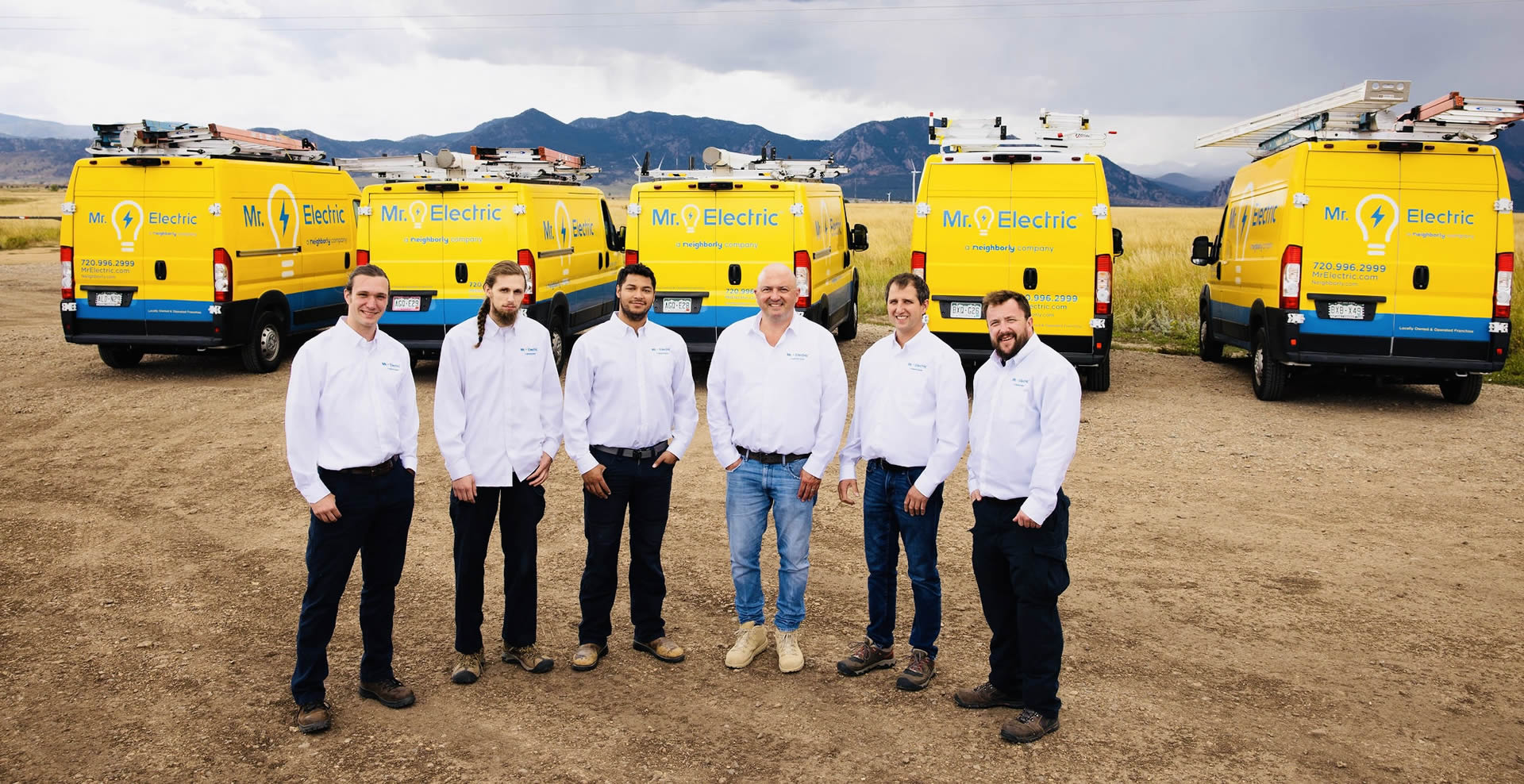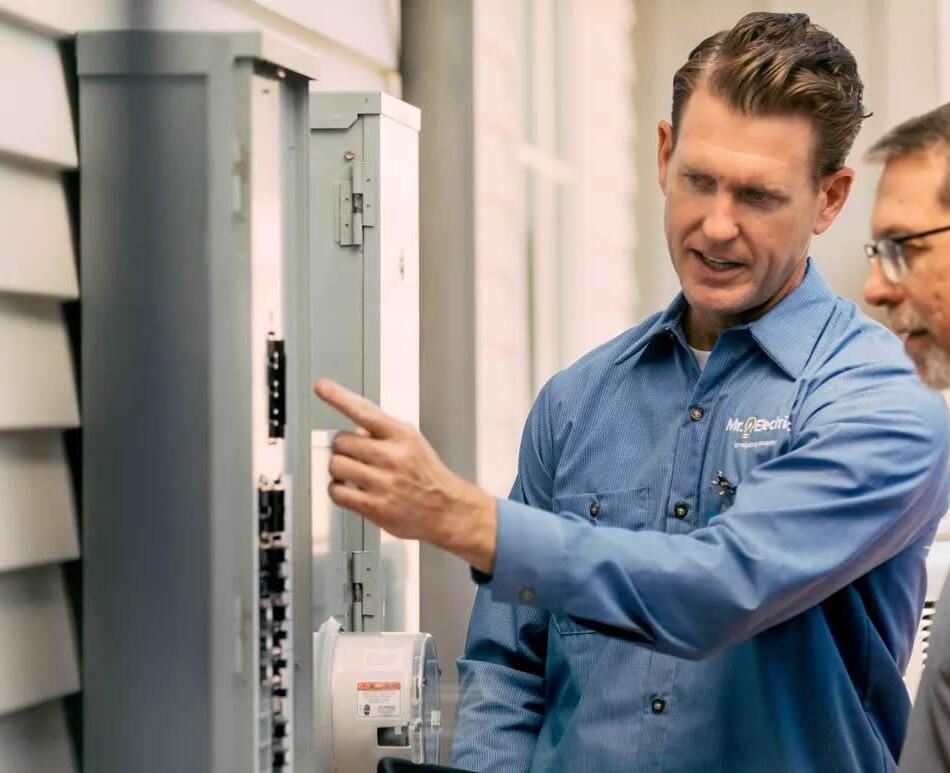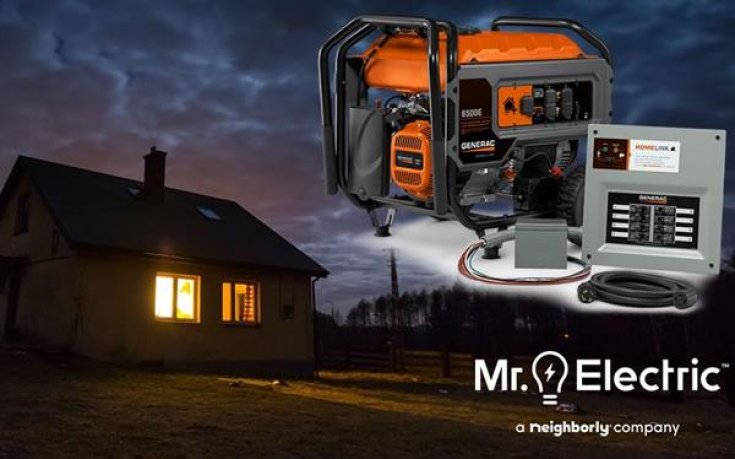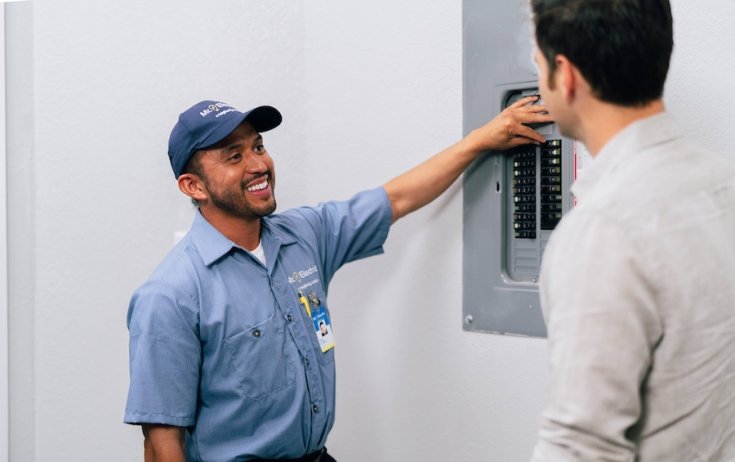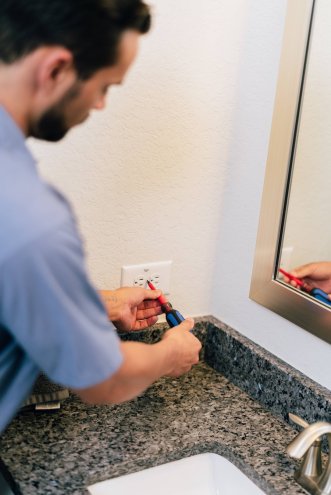Electricity changed how people live, but few think about the hidden system that powers it all. The wiring behind the walls, the switches, and the panel in the basement all tell the story of how homes have adapted to new technology and greater demand. At Mr. Electric, our electricians see that story play out every day when handling electrical repair or upgrades. To understand why modern homes rely on better equipment and smarter design, it helps to see how those systems came to be and where they’re heading next.
The Early Years
In the early 1900s, when homes first gained electricity, wiring systems were simple. A single circuit supplied power to every light in the house. Fuse boxes acted as the control point and protected homes from overloads. Each fuse broke the circuit by burning out when too much current passed through. The melting wire inside the fuse stopped electricity from flowing and reduced fire risk. Replacing a blown fuse was simple but inconvenient. Each time a circuit overloaded, a homeowner had to replace the entire fuse. That process made sense when homes had only a few outlets and light bulbs. As appliances multiplied with refrigerators, washing machines, and radios, old systems struggled. A fuse box built for ten amps of power couldn’t handle a house full of modern conveniences. Fuse boxes also lacked the safety grounding that today’s systems rely on. Wiring insulation was less reliable, and outlets had no ground prong. As a result, stray electricity could move through metal parts and cause shocks or fires. Many homes built before the 1950s used outdated panels long after safer technology became available.
Circuit Breakers and Safer Living
By the 1960s, most new homes ran on circuit breaker panels instead of fuses. That change made home electrical systems safer and simpler to use. When a circuit tripped, a homeowner could flip a switch instead of replacing a burned fuse. Breakers handled more power, which made them a better match for bigger houses and heavier appliances. They also raised the bar for safety. Electricians in Englewood, CO began to add three-wire circuits with a neutral and a ground for added protection. This cut down the risk of shock and allowed outlets and plugs to fit in a safer, more reliable way. Breaker panels also gave homeowners more control. They could label circuits, shut off power to one area during repairs, and replace individual breakers without tearing open walls. This flexibility helped houses keep up with the electrical demands of new decades, like color TVs, microwaves, and air conditioning. However, even breaker panels reached limits. Panels installed in the 1970s and 1980s weren’t built to handle the number of devices found in a modern home. Many older panels carried a 100-amp rating, while modern homes often require 200 amps or more to safely power home offices, electric vehicles, and smart appliances.
The Modern Electrical Panel
Today’s electrical panels are built for reliability, expansion, and precision. New panels can include surge protection, arc fault protection, and GFCI breakers to protect against electrical fires and shocks. They are designed to detect faults faster and shut them down before damage occurs. Modern panels also make it easier to integrate technology that wasn’t imaginable when fuse boxes were installed. Solar panels, backup generators, and EV chargers all depend on upgraded panels that can manage extra power sources. Many setups now feature smart tools that track energy use and point out problems right away. Replacing an outdated panel improves safety and reliability for years to come. A new panel prevents tripped breakers, dim lights, and damaged appliances. It also keeps the home up to code, which plays a key role in insurance approval and resale value. Families that plan to add an EV charger or new electric appliances should have an electrician test capacity first. If the system falls short, upgrading the panel is the safest and smartest choice.
Wiring, Codes, and Home Safety
Wiring standards have changed alongside the progress in panels. Many older homes still have cloth-covered aluminum or knob-and-tube wire. Those systems once worked well, but no longer match today’s safety codes. Aluminum expands and contracts more than copper, so it can loosen joints and create arcs. Modern wire uses copper wrapped in high-temperature insulation for better durability. Building codes require GFCI and AFCI protection in kitchens, bathrooms, and bedrooms to shut off power the moment a fault appears. Electricians performing electrical repair today follow strict standards to maintain a higher level of safety. Every wire, outlet, and breaker must meet current code requirements. When updating an old home, they make sure circuits are grounded properly and that outlets can handle modern electronics without risk. Many older homes can’t meet those standards without a full electrical panel replacement or a wiring overhaul. Upgrading both gives homeowners peace of mind that their system can safely handle the power demands of the present and future.
The Future of Home Power Systems
Electricity evolves with every new piece of technology. Many households now pursue energy independence through solar power and home batteries. Smart panels allow owners to track power use, control circuits, and adjust demand through a phone. The next generation will go further by connecting to the grid and balancing loads on its own. Homes will operate with greater efficiency and remain steady through storms or high-demand periods. Electric vehicles add new demand for steady power. Charging one requires strong wiring and a higher capacity. For many families, upgrading electrical service comes first. As smart homes expand, a reliable electrical setup remains the foundation of safety. Dependable power keeps homes lit, connected, and secure.
Why Upgrading Matters
Older electrical systems usually give hints before they fail. Breakers that trip repeatedly, lights that flicker, or outlets that look burned all show that your circuits are under strain. Those problems can cause heat buildup and raise the risk of fire. A visit from qualified electricians can reveal issues before they turn serious. Professionals can test load capacity and inspect connections. Sometimes that means an electrical repair, while in other cases, it calls for a full panel upgrade. When done right, an electrical panel replacement in Parker, CO adds years of reliability to a home. It will make sure that every outlet, light, and appliance gets stable power without overloading circuits. It also prepares the property for new energy systems.
Powering the Homes of Tomorrow
Fuse boxes belong to the past. Today’s homes need better wiring and modern panels that support growing power needs. Homeowners trust Mr. Electric for reliable electrical panel replacement that protects their investments. Our electricians inspect, repair, and upgrade systems to keep every home safe. If your panel shows strain or you notice flickering lights, call today for an inspection or electrical panel replacement.


